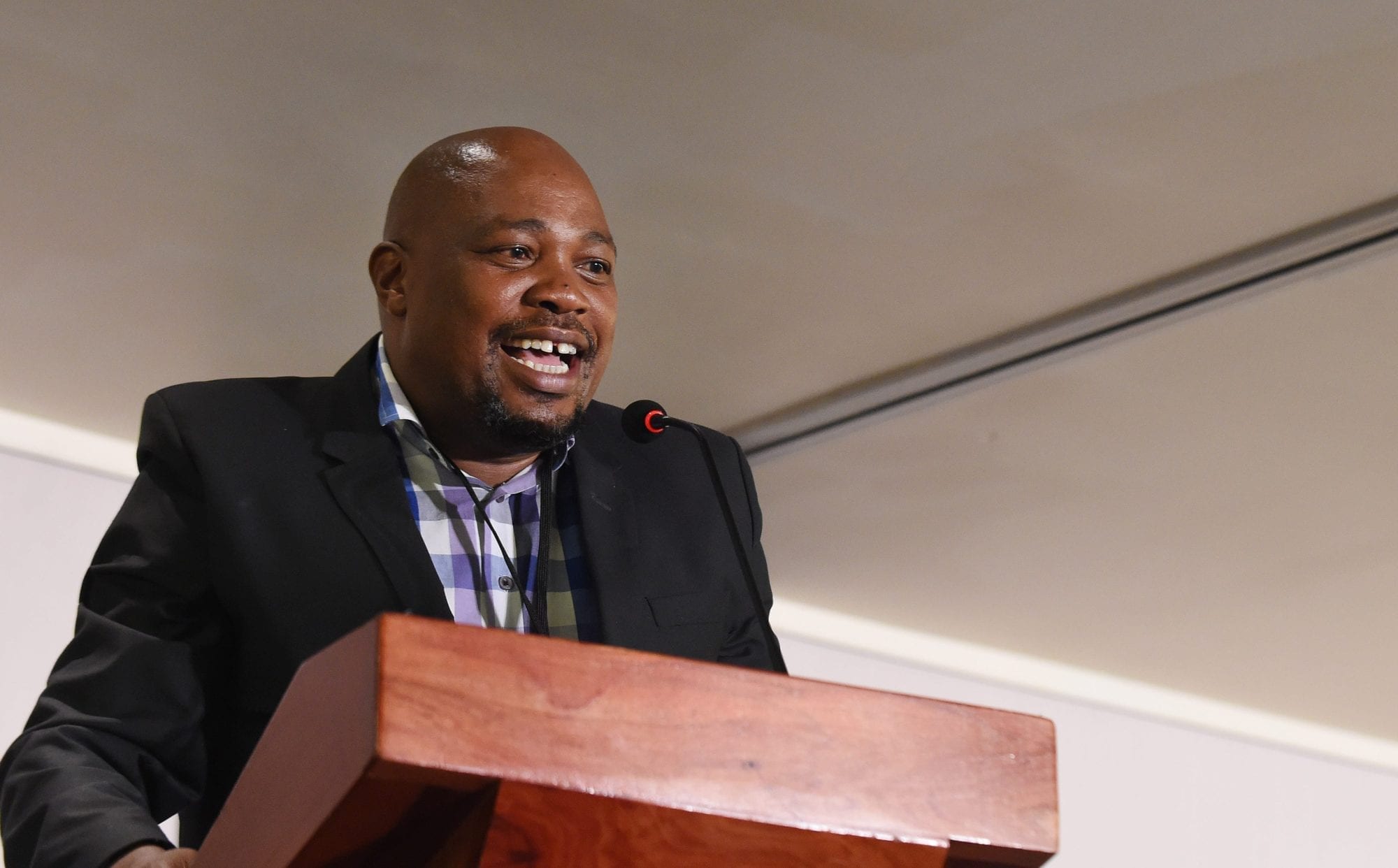
Jan 25, 2017
An estimated 998,000 African migrants entered South Africa between 2011 and 2015, says Mondli Hlatshwayo, coordinator with the Center for Education Rights and Transformation at the University of Johannesburg, where he researches community and trade union education, especially strengthening and building grassroots social justice formations.
But although labor migration from Africa has historically been a male-dominated phenomenon, the pattern has changed significantly in recent decades.
“African women are leaving their countries of birth to create new lives elsewhere. Economic opportunities are primarily available in child care,” and domestic work, he says.
Speaking this morning at the first day of the Solidarity Center conference on fair labor migration, Hlatshwayo provided a detailed overview of migration flows in southern Africa, especially what he describes as the “feminization of migration,” a key focus of the January 25–27 conference’s opening day.
Nearly half of all migrant workers are women, with the feminization of migration increasing in Africa over the past few decades as women seek to support their families. Yet “the situation is worse for women immigrants” who face exploitation based on their sex, he says.
Hlatshwayo described the experience of Pamela Khumalo, a woman migrant worker working in South Africa’s early childhood development sector, who described both her struggle and her courage:
“We have to persevere. Resilience keeps us going. We have to survive against all odds and that has to do with the fact that there are no job and economic opportunities in Zimbabwe. We survive violence on the way to South Africa, because we are looking for work.”
Read Hlatshwayo’s full presentation here.
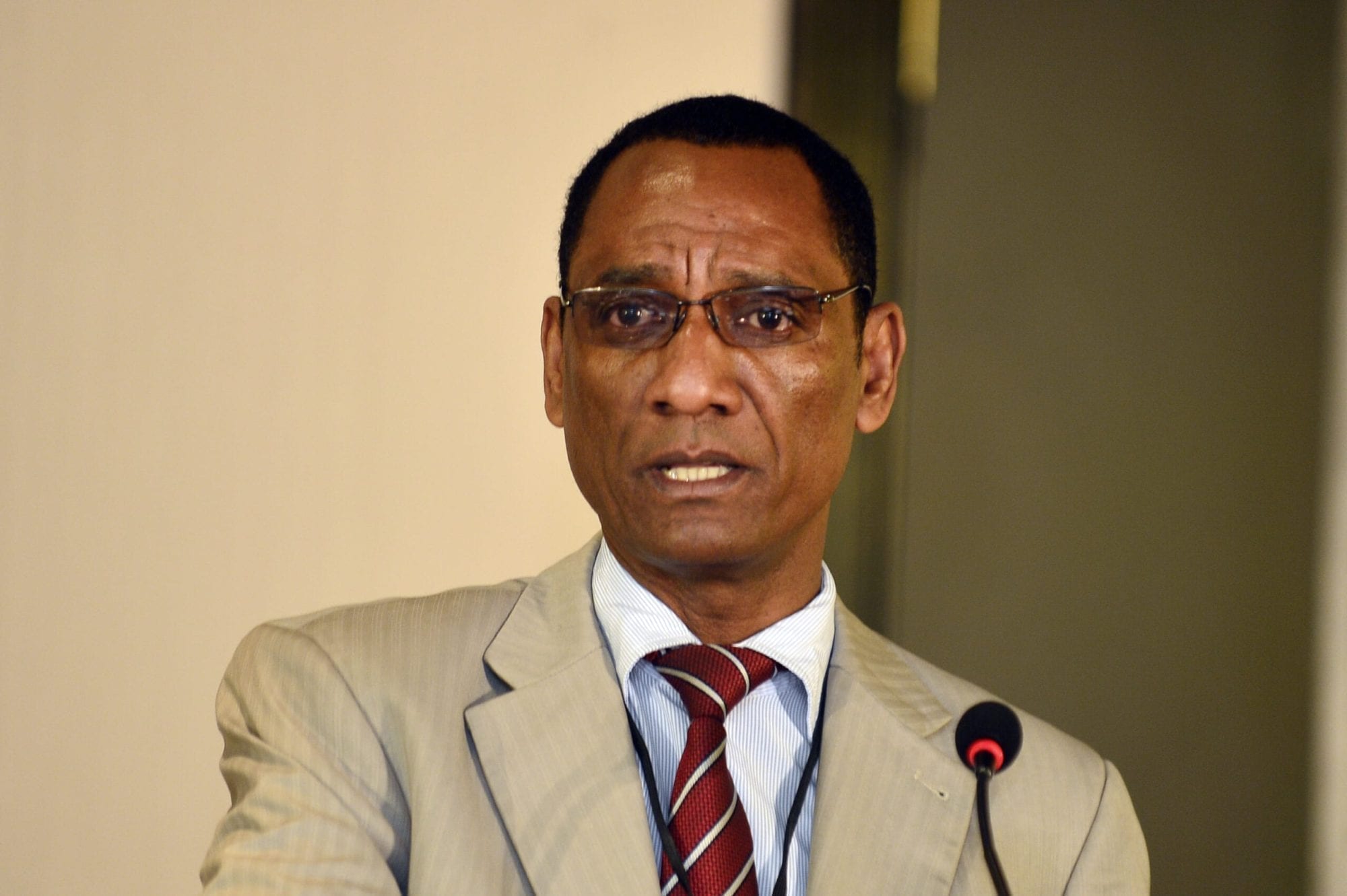
Jan 25, 2017
The respect and dignity of labor migrants is under increasing threat, says Kassahun Follo, first vice president, International Trade Union Confederation-Africa, as migrant workers are demonized and denied basic rights, actions driven by exploitation, racism and xenophobia.
Follo spoke this morning at the opening of the January 25–27 Solidarity Center conference, “Achieving Fair Migration: Roles of African Trade Unions and Their Partners” in Johannesburg, South Africa, where more than 120 union leaders, migrant worker rights advocates and top international human rights officials from nearly two dozen countries and 57 organizations are gathering to share strategies for empowering migrant workers and map out plans for changing policies and laws to provide migrant workers fundamental workplace rights.
(Follow the conference on Twitter with the hashtag FairMigration and check out Solidarity Center on Facebook for regular updates.)
Conference Seeks to ‘Put an End to Employer Abuse of Migrant Workers’
The conference’s opening day focused on the feminization of migration, the varied challenges of migration flows at the region=al level in East, Southern and West Africas, and the global threats of xenophobia and discrimination against migrant, included a discussion with migrant domestic workers.
The conference goal, says Peter Hardie, Solidarity Center country program director, is to “create concrete plans, multilateral and bilateral dialogue to drive change to put a permanent end to the abuses of migrant workers by their employers.”
Worldwide, some 150 million people have traveled across borders and are right now migrant workers in another country and send home global remittances totaling $601 billion dollars. In Africa, 34 million workers are migrants — the majority moving across borders to search for decent work. Half of migrant workers are women, who are especially targeted for abuse and exploitation, often due to their marginalization in the informal economy.

“Making sure working people have the right to form trade unions is the heart and soul of our work,” Credit: Solidarity Center/Evidence Holdings
Although labor migration fuels the world economy, it takes place in a global economy set up entirely on the belief that the free movement of capital and profit across borders is desirable, even sacrosanct; and that lack of regulation is what is needed to make this happen.
“Yet there has been no commensurate systemic expansion of the rights of the working people to go along with the incredible expansion of the rights of business. In fact, the opposite has occurred,” says Solidarity Center Executive Director Shawna Bader Blau, speaking during the conference opening plenary.
Bader-Blau urged participants to build national, cross-border and global coalitions to advance human rights in trade agreements and regional economic integration programs, work harder together to end the double standard of investor rights over worker rights and hold governments accountable to the creation of decent work at home “so migration is truly a choice.”
“Making sure working people have the right to form trade unions is the heart and soul of our work,” says Bader-Blau. The conference must look at how unions “make sure migrant workers have these rights.”
Read Bader-Blau’s full speech here.
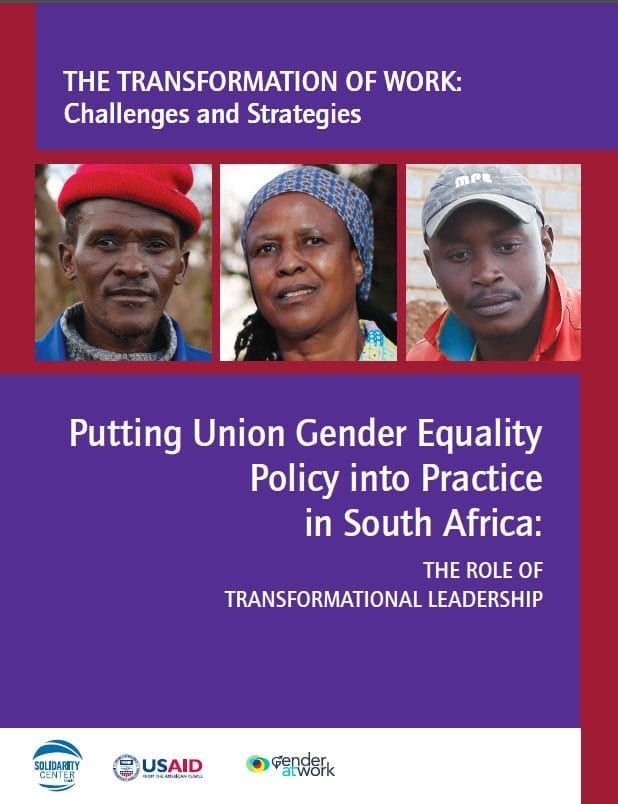
Oct 27, 2015
Unions are key drivers advancing gender equality. Yet in many countries around the world, there is a disconnect between labor union policy and practice in transforming gender inequalities within trade unions. Through the lens of the South African union movement, this report explores the disconnect and examines new strategies for closing the gap between policy and practice.
Download here.
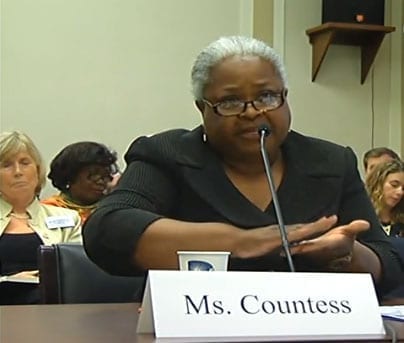
Jun 4, 2015
Zimbabwe’s economy is in deep decline, making it harder for average Zimbabweans to work and live, and leaving them less and less confident in their future, according to Solidarity Center Regional Program Director for Africa Imani Countess, in testimony yesterday on Capitol Hill.
“Most workers earn salaries far below the poverty level, and many workers—even in the formal sector—go for months without receiving their wages,” Countess said. (Read her full testimony here.)
Countess was among three panelists speaking at a hearing on the Future of U.S.-Zimbabwe Relations, held by the U.S. House Subcommittee on Africa, Global Health, Global Human Rights, and International Organizations.
She cited a recent AfroBarometer survey of 2,400 randomly selected participants that details the extent of Zimbabwe’s economic crisis:
- 33 percent of respondents in urban areas had gone without food at least once this year.
- 52 percent in urban areas had gone without medical care.
- 59 percent in urban areas had gone without water.
- Nearly two-thirds say “unemployment is the biggest problem government should address.”
According to the Zimbabwe Congress of Trade Unions, Countess said, “most human rights defenders, like trade unions and civic organizations have been severely weakened due to economic decline as well as brain drain.”
Countess told lawmakers that Zimbabwe labor unions and workers are looking for U.S. policy that includes strong support for human rights defenders and community-based, mass organizations that work to educate and organize citizens around a rights-based culture. Zimbabwe unions also seek U.S. support to provide stronger protection for informal economy workers, that in turn, can positively influence the flow of economic migrants.
Other panelists included Shannon Smith, U.S. State Department deputy assistant secretary for the Bureau of African Affairs and Ben Freeth, Mike Campbell Foundation executive director.
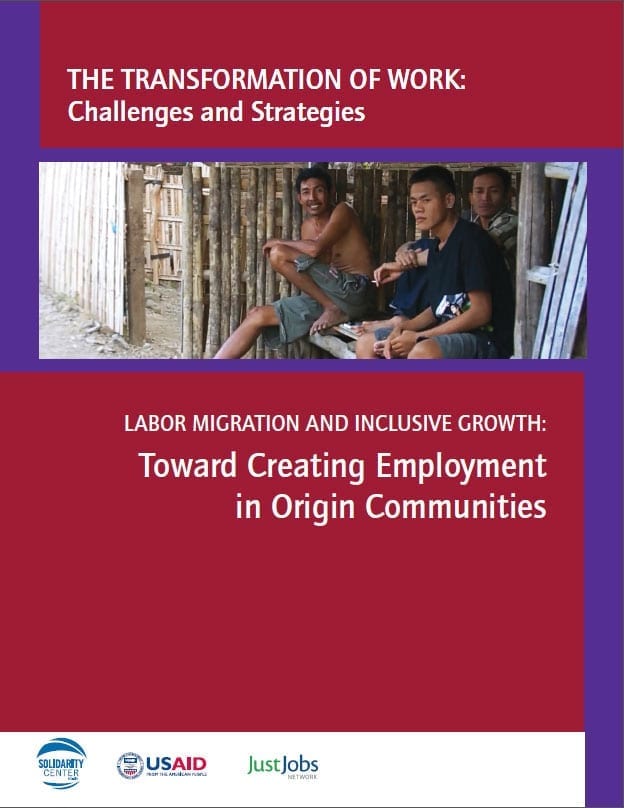
May 22, 2015
This paper investigates the intersection of labor migration and the inclusive growth agenda, and seeks to recommend policies so governments of origin countries can, in part, expand labor migration’s positive impacts by making migrant workers agents in promoting and realizing an inclusive growth agenda in their origin communities.
Download here.






